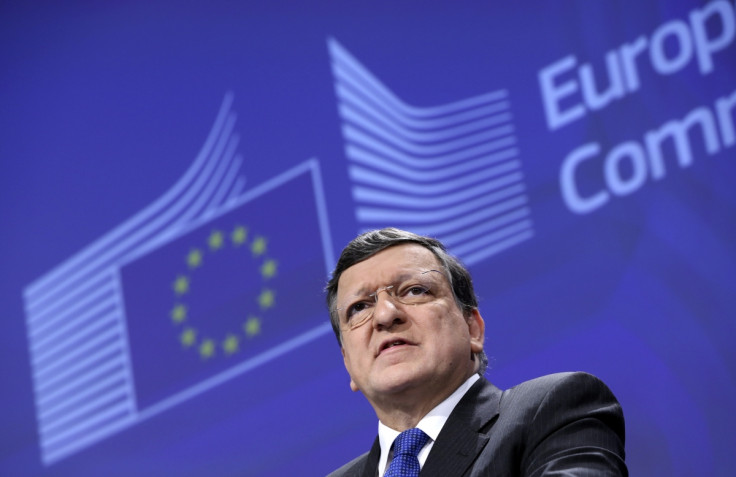Ukraine Crisis: EU Offers €11bn Financial Aid to Ukraine

The European Union is prepared to provide €11bn in financial aid to Ukraine in the form of loans and grants, European Commission president Jose Manuel Barroso has confirmed.
The assistance would be delivered in coordination with the European Bank for Reconstruction and Development and the European Investment Bank, and is in part subject to Ukraine signing a deal with the International Monetary Fund (IMF).
European leaders are scheduled to meet in Brussels to discuss potential sanctions against Russia if Moscow does not reverse course in Crimea.
"The package combined could bring an overall support of at least €11bn (£9bn, $15.1bn) over the next couple of years, from the EU budget and EU-based international financial institutions," Barroso told a news conference in Brussels.
The EU also proposes to offer trade benefits that Ukraine would have received had it inked an association agreement with the EU in 2013, and would work on providing energy to Ukraine through "reverse flows" of gas from the EU.
The announcement comes a day after the US pledged $1bn in loan guarantees to the troubled nation. The US also said it would offer technical assistance to the new government as the West seeks to draw the country closer to the EU and away from Russia's sphere of influence, following president Vladimir Putin's decision to send military forces to occupy the Crimea Peninsula.
The West has increased its efforts in recent days to persuade Moscow to withdraw its forces from Crimea, which they seized after the fall of Russia-backed president Viktor Yanukovich, and deflect the risk of war.
Ukraine is on the brink of bankruptcy following economic mismanagement, high energy costs and currency turbulence triggered by a conflict with Russia since the ouster of Yanukovich in February.
Kiev's new leaders have said they need $35bn over the next two years. However, shorter-term requirements are estimated at $4bn, according to some EU officials.
© Copyright IBTimes 2025. All rights reserved.






















